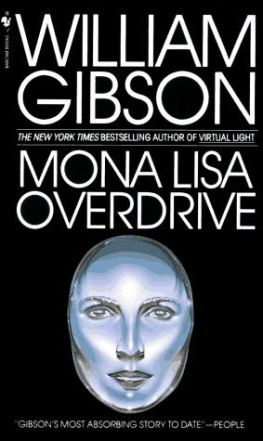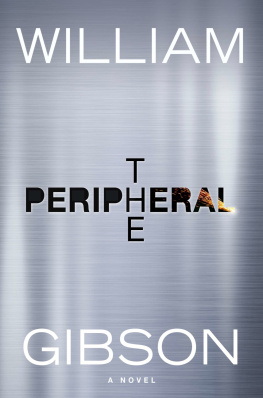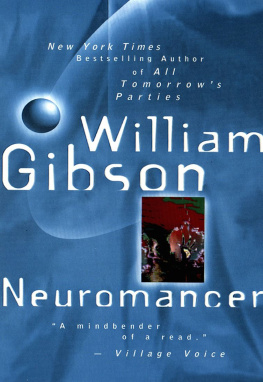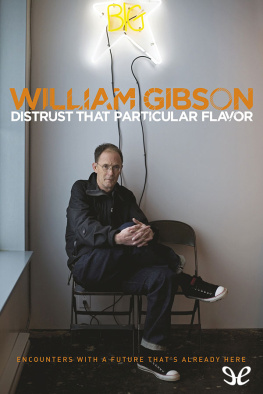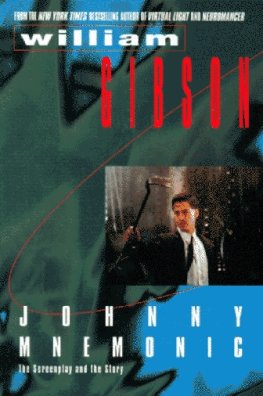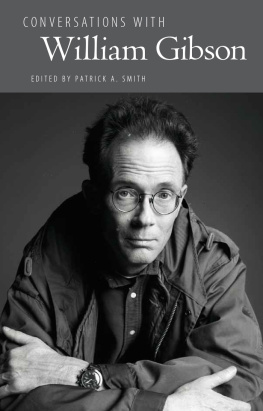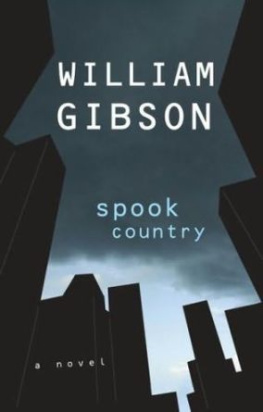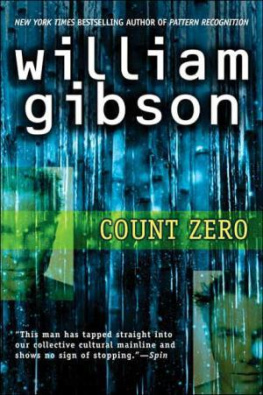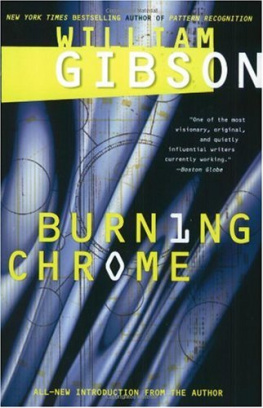William Gibson - Fragments of a Hologram Rose
Here you can read online William Gibson - Fragments of a Hologram Rose full text of the book (entire story) in english for free. Download pdf and epub, get meaning, cover and reviews about this ebook. genre: Science fiction. Description of the work, (preface) as well as reviews are available. Best literature library LitArk.com created for fans of good reading and offers a wide selection of genres:
Romance novel
Science fiction
Adventure
Detective
Science
History
Home and family
Prose
Art
Politics
Computer
Non-fiction
Religion
Business
Children
Humor
Choose a favorite category and find really read worthwhile books. Enjoy immersion in the world of imagination, feel the emotions of the characters or learn something new for yourself, make an fascinating discovery.

- Book:Fragments of a Hologram Rose
- Author:
- Genre:
- Rating:5 / 5
- Favourites:Add to favourites
- Your mark:
- 100
- 1
- 2
- 3
- 4
- 5
Fragments of a Hologram Rose: summary, description and annotation
We offer to read an annotation, description, summary or preface (depends on what the author of the book "Fragments of a Hologram Rose" wrote himself). If you haven't found the necessary information about the book — write in the comments, we will try to find it.
Fragments of a Hologram Rose — read online for free the complete book (whole text) full work
Below is the text of the book, divided by pages. System saving the place of the last page read, allows you to conveniently read the book "Fragments of a Hologram Rose" online for free, without having to search again every time where you left off. Put a bookmark, and you can go to the page where you finished reading at any time.
Font size:
Interval:
Bookmark:
William Gibson
Fragments of a Hologram Rose
That summer Parker had trouble sleeping.
There were power droughts; sudden failures of the delta-inducer brought painfully abrupt returns to consciousness.
To avoid these, he used patch cords, miniature alligator clips, and black tape to wire the inducer to a battery-operated ASP-deck. Power loss in the inducer would trigger the deck's playback circuit.
He brought an ASP cassette that began with the subject asleep on a quiet beach. It had been recorded by a young blonde yogi with 20-20 vision and an abnormally acute color sense. The boy had been flown to Barbados for the sole purpose of taking a nap and his morning's exerciseon a brilliant stretch of private beach. The microfiche laminate in the cassette's transparent case explained that the yogi could will himself through alpha to delta without an inducer. Parker, who hadn't been able to sleep without an inducer for two years, wondered if this was possible.
He had been able to sit through the whole thing only once, though by now he knew every sensation of the first five subjective minutes. He thought the most interesting part of the sequence was a slight editing slip at the start of the elaborate breathing routine: a swift glance down the white beach that picked out the figure of a guard patrolling a chain link fence, a black machine pistol slung over his arm.
While Parker slept, power drained from the city's grids.
The transition from delta to delta-ASP was a dark implosion into other flesh. Familiarity cushioned the shock. He felt the cool sand under his shoulders. The cuffs of his tattered jeans flapped against his bare ankles in the morning breeze. Soon the boy would wake fully and begin his Ardha-Matsyendra-something; with other hands Parker groped in darkness for the ASP deck.
Three in the morning.
Making yourself a cup of coffe in the dark, using a flashlight when you pour the boiling water.
Morning's recorded dream, fading: through other eyes, dark plume of a Cuban freighter - fading with the horizon it navigates across the mind's gray screen.
Three in the morning.
Let yesterday arrange itself around you in flat schematic images. What you said - what she said - watching her pack - dialing the cab. However you shuffle them they form the same printed circuit, hieroglyphs converging on a central component: you, standing in the rain, screaming at the cabby.
The rain was sour and acid, nearly the color of piss. The cabby called you an asshole; you still had to pay twice the fare. She had three pieces of luggage. In his respirator and goggles, the man looked like an ant. He pedaled away in the rain. She didn't look back.
The last you saw of her was a giant ant, giving you the finger.
Parker saw his first ASP unit in Texas shantytown called Judy's Jungle. It was a massive console in cheap plastic chrome. A ten-dollar bill fed into the shot bought you five minutes of free-fall gymnastics in a Swiss orbital spa, trampoining through twenty-meter perihelions with a sixteen-year-old Vogue model - heady stuff for the Jungle, where it was simpler to buy a gun than a hot bath.
Hewas in New York with forged papers a year later, when two leading firms had the first portable decks in major department stores in time for Christmas. The ASP porn theathers that had boomed briefly in California never recovered.
Holography went too, and the block-wide Fuller domes that had been the holo temples of Parker's childhood became multilevel supermarkets, or housed dusty amusement arcades where you still might find the old consoles, under faded neon pulsing APPARENT SENSORY PERCEPTION through a blue haze of cigarette smoke.
Now Parker is thirty and writes continuity for broadcast ASP, programming the eye movements of the industry's human cameras.
The brown-out continues.
In the bedroom, Parker prods the brushed-aluminium face of his Sendai Sleep-Master. Its pilot light flickers, then lapses into darkness. Coffe in hand, he crosses the carpet to the closet he emptied the day before. The flashlight's beam probes the bare shelves for evidence of love, finding a broken leather sandal strap, an ASP cassette, and a postcard. The postcard is a white light reflection hologram of a rose.
At the kitchen sink, he feeds the sandal strap to the disposal unit. Sluggish in the brown-out, it complains, but swallows and digests. Holding it carefully between thumb and forefinger, he lowers the hologram toward the hidden rotating jaws. The unit emits a thin scream as steel teeth slash laminated plastic and the rose is shredded into a thousand fragments.
Later he sits on the unmade bed, smoking. Her casette is n the deck ready for playback. Some women's tapes disorients him, but he doubts this is the reason he now hesitates to start the machine.
Roughly a quarter of all ASP users are unable to comfortably assimilate the subjective body picture of the opposite sex. Over the years some broadcast ASP stars have become increasingly androgynous in an attempt to capture this segment of the audience.
But Angela's own tapes have never intimidated him before. (But what if she has recorded a lover?) No, that can't be it - it's simply that the casette is an entirely unknown quantity.
When Parker was fifteen, his parents indentured him to the American subsidiary of a Japanise plastics combine. At the time, he felt fortunate; the ratio of applicants to indentured trainees was enormous. For three years he lived with his cadre in a dormitory, singing the company hymns in formation each morning and usually managing to go over the compound fence at least once a month for girls or the holodrome.
The indenture would have terminated on his twentieth birthday, leaving him eligible for full employee status. A week before his nineteenth birthday, with two stolen credit cards and a change of clothes, he went over the fence for the last time. He arrived in California three days before the chaotic New Secessionist regime collapsed. In San Fransisco, warring splinter groups hit and ran in the streets. One or another of four different 'provisional' city governements had done such an efficient job of stockpiling food that almost none was available at street level
Parker spent the last night of the revolution in a burned out Tucson suburb, making love to a thin teenager from New Jersey who explained the finer points of her horoscope between bouts of almost silent weeping that seemed to have nothing at all to do with anything he did or said.
Years later he realized that he no longer had any idea of his original motive in breaking his indenture.
The first three quarters of the cassette had been erased; you punch yourself fast-forward through a static haze of wiped tape, where taste and scent blur into a single channel. The audio input is white sound - the no-sound of the first dark sea... (Prolonged input from wiped tape can induce hypnagogic hallucination.)
Parker crouched in the roadside New Mexico brush at midnight, watching a tank burn on the highway. Flame lit the broken white line he had followed from Tucson. The explosion had been visible two miles away, a white sheet of heat lighting that had turned the pale branches of a bare tree against the night sky into a photographic negative of themselves: carbon branches against magnesium sky.
Many of the refugees were armed.
Texas owed the shantytowns that steamed in the warm Gulf rains to the uneasy neutrality she had maintaned in the face of the Coast's attempted secession.
The towns were built of plywood, cardboard, plastic sheets that billowed in the wind, and the bodies of dead vehicles. They had names like Jump City and Sugaree, and loosely defined governements and territories that shifted constantly in the covert winds of a black-market economy.
Federal and state troops sent in to sweep the outlaw towns seldom found anything. But after each search a few men would fail to report back. Some had sold their weapons and burned their uniforms, and others had come too close to the contraband thay had been sent to find.
Font size:
Interval:
Bookmark:
Similar books «Fragments of a Hologram Rose»
Look at similar books to Fragments of a Hologram Rose. We have selected literature similar in name and meaning in the hope of providing readers with more options to find new, interesting, not yet read works.
Discussion, reviews of the book Fragments of a Hologram Rose and just readers' own opinions. Leave your comments, write what you think about the work, its meaning or the main characters. Specify what exactly you liked and what you didn't like, and why you think so.

